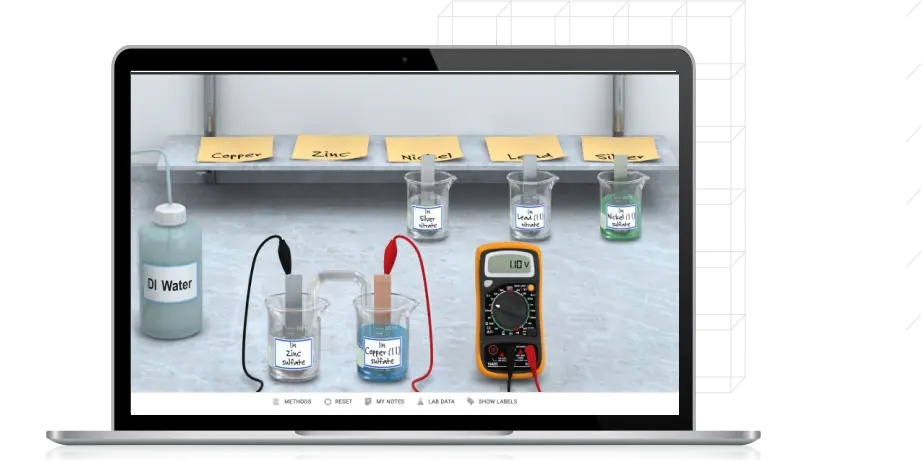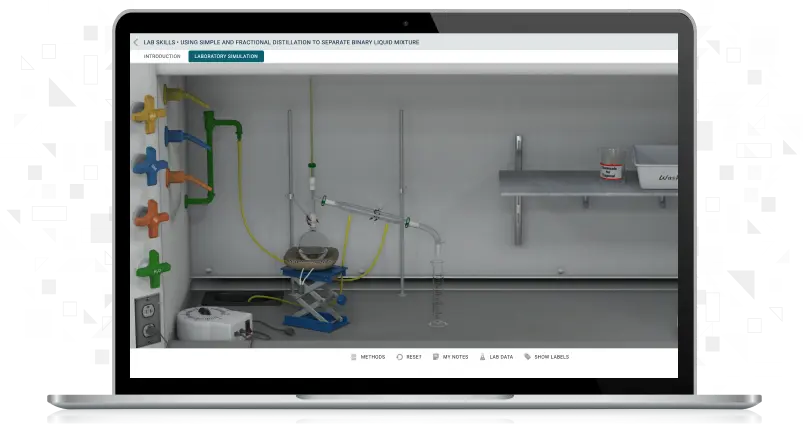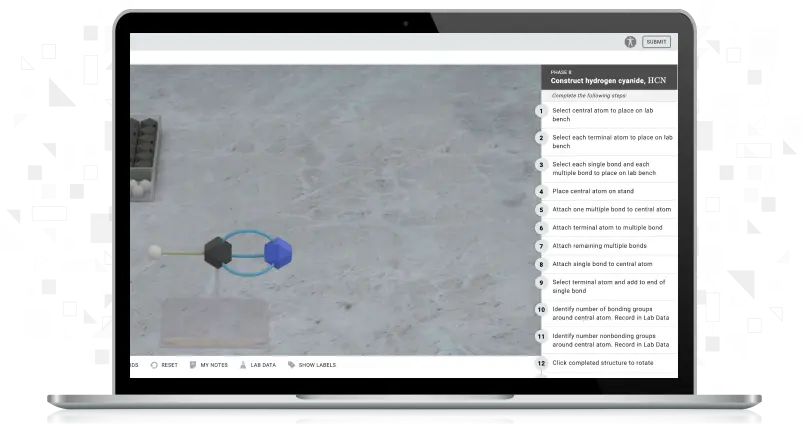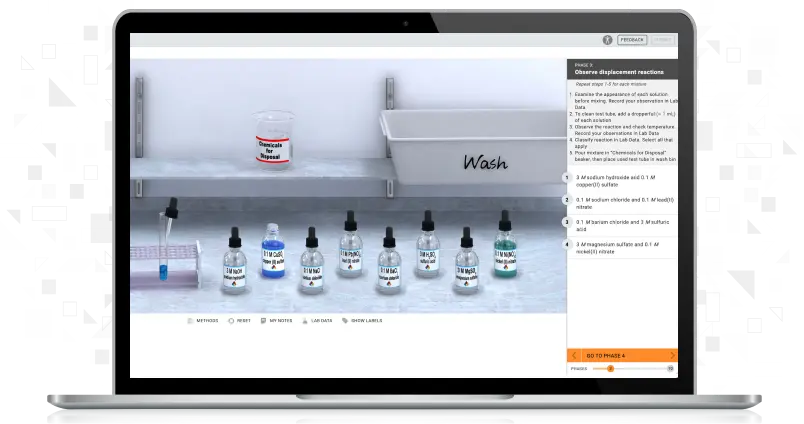My Account Details
Chemistry
Assigning virtual experiments as pre-lab assignments is an effective way to promote conceptual understanding and enable students to be both minds-on and hands-on when in physical lab. From osmosis, diffusion, pH balance, to spectrophotometry, discover how McGraw Hill Virtual Labs for Chemistry can support your student’s hands-on work.

Featured Simulations for Chemistry

Using Simple and Fractional Distillation to Separate Binary Liquid Mixture , Link will open in a new window
Students will separate an unknown mixture containing two miscible liquids and separate it into its components. Using simple distillation and fractional distillation, students use the same unknown mixture to determine each liquid component's boiling point and identity.

Molecular Modeling , Link will open in a new window
Students will use Lewis structures and VSEPR theory to predict shapes of small molecules and polyatomic ions.

Reactions in Solution , Link will open in a new window
Students will observe indications of a chemical change after mixing aqueous solutions or adding a metal to an aqueous solution. Students will classify the chemical reaction and identify the net ionic equation.
